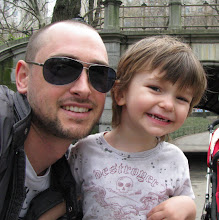skip to main |
skip to sidebar


A single, home-based operation, that has organically grown into the world’s fastest-growing, Internet marketing education and resource company. What started as one person's pursuit of additional income by harnessing the power of the Internet has turned into one of the largest communities of successful Internet-based entrepreneurs, selflessly sharing and leveraging each other’s strategies and tactics.
The CarbonCopyPRO sponsored New York Blue
Connect with me!
Personal Website: JayKubassek.com
Twitter: Twitter.com/jkubassek
MySpace: MySpace.com/kubassek
YouTube: YouTube.com/jaykubassek
FaceBook: facebook.com
Evan Carmichael: EvanCarmichael.com/jaykubassek
About Jay Kubassek

- Jay Kubassek
- New York City, United States
- Since 2004, Canadian-born entrepreneur Jay Kubassek went from selling mufflers at Midas to revolutionizing Internet marketing with the 2004 launch of CarbonCopyPRO, an online marketing education and resource company for entrepreneurs in over 160 countries. His upstart indie film production and distribution company Aliquot Films is currently producing MESKADA starring Meryl Streep's daughter and Spike Lee's Evolution Of A Criminal. Aliquot Films is also Executive Producer and domestic distributor of Abel Ferrara's and Chelsea On The Rocks starring Ethan Hawke and Dennis Hopper which opened nationwide in theaters Oct 2009. Jay's entrepreneurial spirit is irrepressible. He’s the owner of five companies, a professional speaker and trainer, international real estate developer/investor, extreme sport enthusiast and emerging philanthropist. Jay resides in NYC with his wife Jamie, son Milo and dog Cooper.
Jay Kubassek











